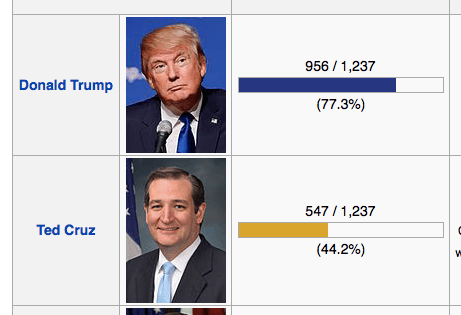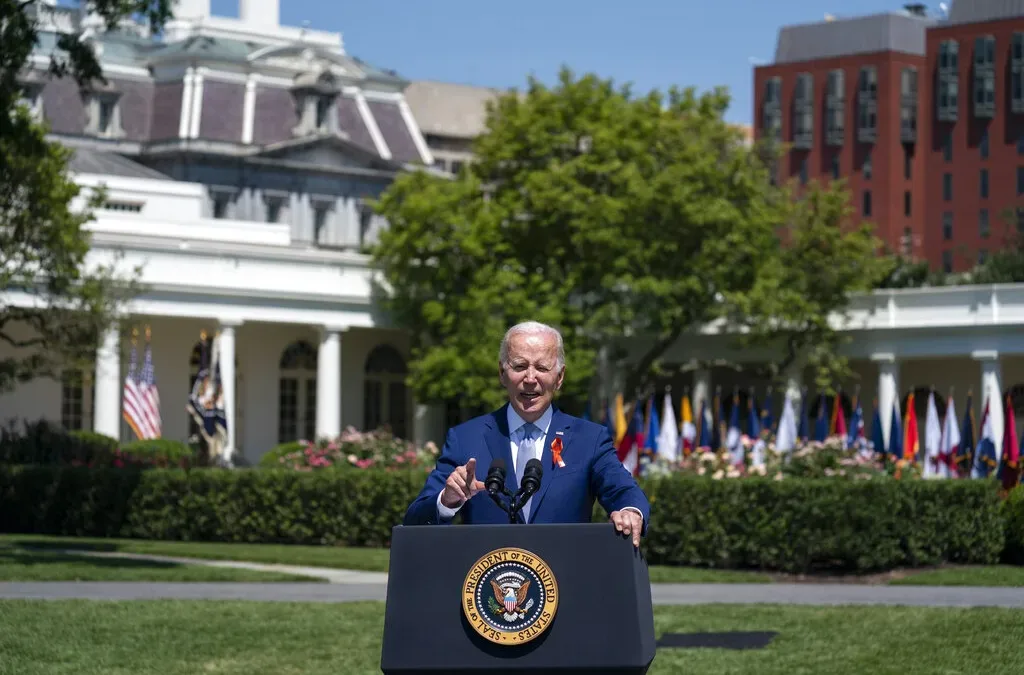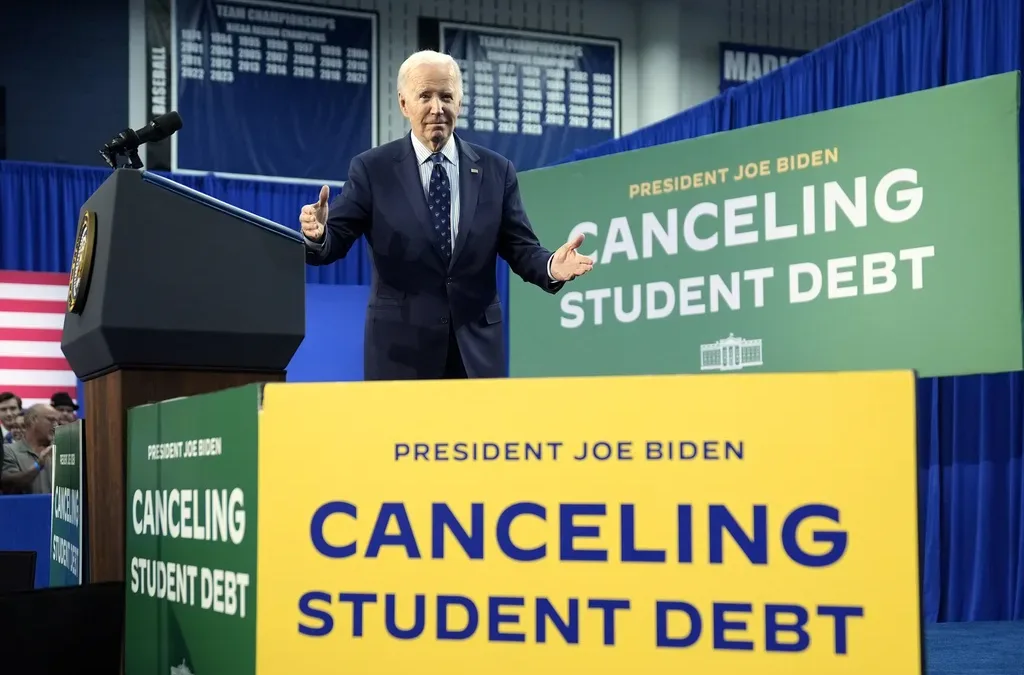
Guest post from Nate Willems
This is America, whoever has a majority wins.
This is America, whoever has the most votes wins.
Which statement is more correct? We don’t seem to have a good or clear answer to this question. Put aside the law, the rules or the system. We lack a clear answer as to who should win or who deserves to win the Republican nomination.
Trump appears on his way to winning the most Republican primary votes and delegates, but not a majority. Some believe Trump has no right to win the nomination in this situation – somebody else who got fewer votes or no votes has just as much right to the nomination. On the other hand, a recent NBC poll shows 62% of Americans believe the candidate with the most votes should win. Why don’t we have a clear answer as to which is right?
Well, we don’t have much experience at this. We are accustomed to having two candidates producing a clear winner and loser. We are accustomed to this because we have a first-past-the-post system, winner take all. In this system, it is difficult for more than two parties to survive. Ross Perot won 19% of the vote in 1992. If he led a political party in France, Perot would have won 19% of the seats in parliament and been the kingmaker in deciding which party he would align with to form a government. In America, he got nothing and his political movement disappeared with him.
In a primary, though, more than two people can run with a realistic chance of winning. So, shouldn’t we be used to the idea of somebody winning without a majority? Kind of. The fact is not nearly as many people typically pay attention to primary elections as they do general elections. So, not all that many people have followed the recent examples we have of plurality, but not majority, victories.
Some states decide to potentially add a third election between a primary and a general. In some states, if the primary plurality winner does not win a majority, a run-off election sprouts up several weeks later between the top two candidates. Iowa has a modified use of run-off elections in city races. These laws show sometimes we think a winner ought to have a majority.
In partisan primary elections, Iowa law has almost a kind of compromise position between needing a majority and needing to win the most votes. If the candidate with the most votes also gets to 35% they win. If not, the whole vote is basically nullified and a convention of party activists picks the winner – this is how Steve King got to Congress. Our law essentially says, “we think the person with the most votes should win, but come on, we have to draw the line somewhere.”
So, we try different rules for what it means to be a winner at different times. However, the truth is this is not a situation we have had to confront often; even when we have the stakes were not high enough that many people paid a great deal of attention much less expressed outrage over the system being rigged or unfair.
Of course, the Republican presidential nominating process has a higher profile than a city council race or congressional primary. We see a situation looming where the person with the most votes and delegates may be denied the nomination. There are rules in place that are supposed to legitimize the process of taking the Republican nomination away from Trump. Normally, we feel good following rules and laws. Rules and laws have legitimacy. But when voters have never really had to learn the rules and all of the sudden people appear on television explaining the rules as though you should already have learned them, a space emerges between what is believed to be right and what the rules allow. In that space, rules can lose legitimacy. And then it is not just the rules, or the party that created them, which loses legitimacy, it is the so-called winner who emerges without legitimacy. This is why Paul Ryan will not run for President in 2016.
by Nate Willems
Posted 4/27/16
Politics

Biden announces new action to address gun sale loopholes
The Biden administration on Thursday announced new action to crack down on the sale of firearms without background checks and prevent the illegal...

Biden cancels student loan debt for 2,690 more Iowans
The Biden administration on Friday announced its cancellation of an additional $7.4 billion in student debt for 277,000 borrowers, including 2,690...
Local News

No more Kum & Go? New owner Maverik of Utah retiring famous brand
Will Kum & Go have come and gone by next year? One new report claims that's the plan by the store's new owners. The Iowa-based convenience store...

Here’s a recap of the biggest headlines Iowa celebs made In 2023
For these famous Iowans, 2023 was a year of controversy, career highlights, and full-circle moments. Here’s how 2023 went for the following Iowans:...





